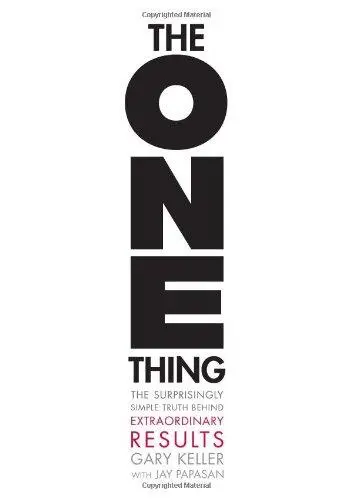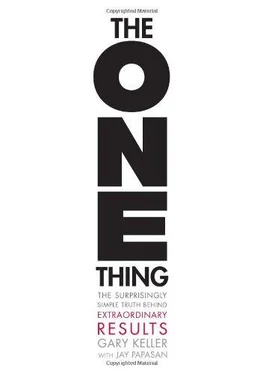Your willpower is like a fuel tank: choose carefully where you use it or you may run out when you really need it.

Most people are painfully aware that they do not have ironclad willpower. What is surprising, however, is that research has shown that our willpower, far from being a constant resource, actually drains at varying rates throughout the day, depending on what activities we engage in.
For example, our willpower is depleted when we make decisions to focus our attention, suppress our emotions or modify our behavior in pursuit of a goal. When our willpower has been drained, we are less able to exert it should further tasks call upon this resource.
This would explain why you may be unable to resist a tasty snack after a period of making tough decisions or being engaged in tedious work.
Giving in to a “guilty pleasure” is one thing, but if you are making life and death decisions when your willpower is low, the consequences are potentially much more serious.
For prisoners, few decisions are as important as the ruling at the next parole-board hearing. Could decisions of such gravity be influenced by something as arbitrary as the time of day?
Research involving Israeli parole judges shows that they could: judges were much more likely to give favorable judgments at the start of a parole hearing than towards the end. This is because the judges tended to rely on the default decision of “no parole” as the day wore on and their willpower ran low. The rate of favorable judgments picked up again after breaks and a snack.
Full-strength willpower requires a full tank, so plan your day so that you can avoid making key decisions or judgments when you’re running low.
Your willpower is like a fuel tank: choose carefully where you use it or you may run out when you really need it.
Saying “no” to unimportant tasks is vital if you are to focus your efforts on the most important ones.
When asked about success, Bill Cosby recalled a key piece of advice he’d received: “I don’t know the key to success, but the key to failure is trying to please everybody.”
We all struggle at one time or another with saying “no” to requests, because we want to be helpful. Helping others can be deeply rewarding, but, in order to preserve your time and energy for your biggest goals, you need to say “no” to lower-priority requests.
Steve Jobs was famously as proud of the projects he didn’t pursue as the ones he did. When he returned to Apple in 1997, he reduced the company's output from 350 products down to just 10. That’s a lot of no's. At a developer’s conference in 1997, he explained, “When you think about focusing, you think ‘Well, focusing is about saying yes.’ No! Focusing is about saying no.”
Saying “no” to people all the time does not have to be as cold or as selfish as it may appear. You can always try to give them an alternative solution that doesn’t require your assistance, or redirect them to someone who can be more helpful.
Also, think about implementing strategies that will cut down on the requests you get; for example, by asking that staff refer to a list of frequently asked questions before approaching you. This may help, but remember: sometimes you will still have to actually turn people down if you are to succeed.
With limited time and resources, you must be prepared to say “no” to trivial tasks if you want to focus your energy and get the most important ones done.
Saying “no” to unimportant tasks is vital if you are to focus your efforts on the most important ones.
Living with purpose and visualizing the steps to get to your goal will set you on the path to extraordinary results.
Imagine for a minute that you currently have no concrete goals or ambitions whatsoever. Adrift like this, how would you decide what to do each day? Do you think you would persevere at a difficult and tedious task without knowing why you’re doing it?
When we imagine the above scenario, we realize how important it is to have a goal to work towards. It gives your life added meaning and purpose, which leads to greater clarity in your thoughts, more conviction in your actions, and faster decisions. Most importantly, though, knowing why you’re doing what you’re doing provides inspiration and motivation when problems occur.
With a goal in place, you can start planning the steps to reach it, but it’s even better if you also visualize each step along the way, as this motivates you and prepares you for the road ahead. These beneficial effects were shown in a study of students, who, when taking a test, were asked to visualize either the outcome of the test or the process of preparing for and taking it. The students who visualized the process reported higher levels of motivation, were better prepared and subsequently got better results.
Recall the image of being so adrift at the start of this blink? Now imagine that you have found your calling: you want to climb Mount Everest. Your goal is suddenly clear: it’s the ONE thing you want to do. You now need to do some research, start training and get the right equipment. Thanks to your goal, you’re already making plans, visualizing the steps and progressing towards it.
Defining a goal – the ONE thing we want to do and achieve in life – is something we should all strive toward.
Living with purpose and visualizing the steps to get to your goal will set you on the path to extraordinary results.
Never compromise your personal life for your professional goals – instead, prioritize your work time ruthlessly.
We all strive to achieve a “balanced life” – to divide our time equally between all of the things that matter to us – but we do this without stopping to ask why, and what it is that we are actually trying to achieve.
It’s understandable that we strive for balance because all of the demands in our work life and personal life seem so important, but in fact this vision of a balanced life is unobtainable and undesirable. If you try to do everything, you will end up short-changing everything you do, in both your personal and your professional life.
Author James Patterson encapsulated this dilemma when he said: “Imagine life is a game in which you are juggling five balls. They are called work, family, health, friends and integrity. And you’re keeping them all in the air. But one day you finally come to understand that the work ball is made of rubber – if you drop it, it will bounce back. The other four balls are made of glass.”
As the quote illustrates, we should never sacrifice priorities in our personal life when the pressure is on at work. The damage done may be irreparable. But if our personal life always takes precedence, how can we succeed professionally?
The trick is to prioritize your work time ruthlessly to focus on professional goals. In your personal life, neglecting any area can be perilous; but in your work-life, you have your top priority and everything else is negotiable. From time to time, lesser priorities will have to be minimized, be made to wait, or be managed by someone else until what really matters is done. This approach will allow you to focus on your most important work, giving it the concentration that is required to achieve great results.
Never compromise your personal life for your professional goals – instead, prioritize your work time ruthlessly.
To focus on your ONE thing, you need effective time-management strategies, and to accept some chaos in other areas.
Читать дальше













